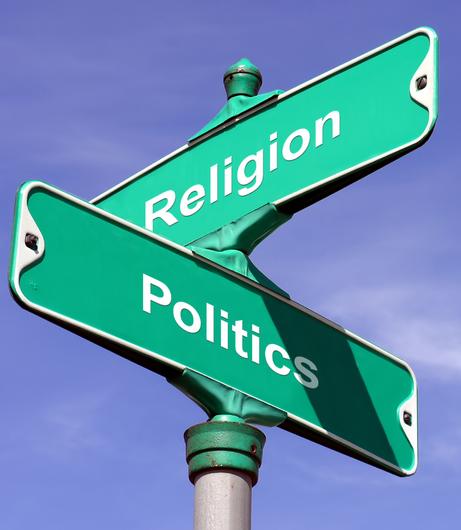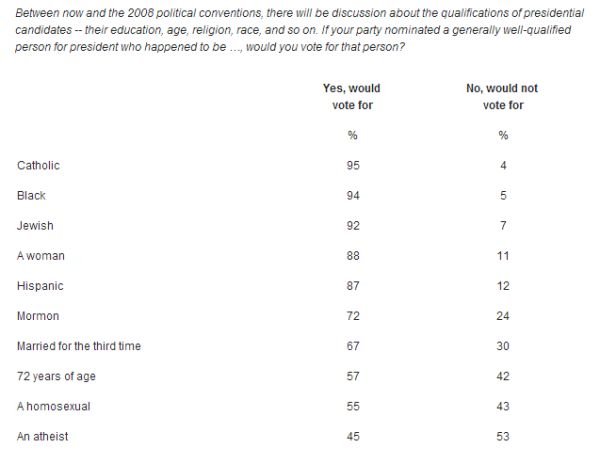The Number of Non Religious People in the US is on the Rise

A survey released by the Pew Institute on Tuesday shows that the number of nonreligious people in the US is on the rise, reaching a record high of 20 percent. However, this trend has yet to be reflected in the political arena.
Credit:http://www.pewforum.org/Unaffiliated/nones-on-the-rise.aspxToday, 1 out of 5 Americans (1 out of 3 for those under 30), consider themselves to be non-religiously affiliated. The number of people not affiliated to any religion is growing more rapidly than any other religious group. The US has long been more religious than the rest of the developed world, but is now joining a global trend in which 23% of the world population is considered non religious. This growth remains slow, however, for atheists and agnostics, which is a nonreligious affiliation many Americans still find difficult to wear. Only 6% of people in the US claim to be atheist or agnostic, which is far from the 13% world average.
If the absence of religiosity is more and more accepted in everyday life, this evolution has not yet been translated in the American political arena. Indeed, in the last session, no member of the Congress declared themselves as atheist, or even non affiliated. Only two high level elected officials have ever openly spoken about being non-theists: Congressman Peter Stark from California and State Senator Ernie Chambers from Nebraska, famous for his legal case against God. In contrast, many developed countries have had non believers as head of government such as current Australian Prime Minister Julia Guillard, Great Britain Deputy Prime Minister Nick Clegg, or Norway's Prime Minister Jens Stoltenberg.
A few facts can help illustrate why being a non-theist remains a taboo if you are running for office in the US. In 2007, a Gallup poll showed that voting for an atheist would be the last option chosen by American voters, after voting for a homosexual, a 72 year-old, or someone married three times. Being atheist is the only category that received more vote-against than for.
Credit: http://www.gallup.com/poll/26611/some-americans-reluctant-vote-mormon-72yearold-presidential-candidates.aspx#1Another survey in 2011 showed that 53% of Americans think that a belief in God is directly linked to morality. Finally, the two most famous political "atheist" figures in a lot of American minds are Hitler and Stalin, not the best example of someone you would vote for. With this in mind, it is understandable that nobody in the current election is running under the banner of godlessness.
It will certainly take time for the religious environment in the US to change enough to have an openly atheist elected official, but with non-religiously affiliated people making up 20% of the electorate we can hope that more representation for that group will be seen in the near future.






